#paranoia 2013
Explore tagged Tumblr posts
Text
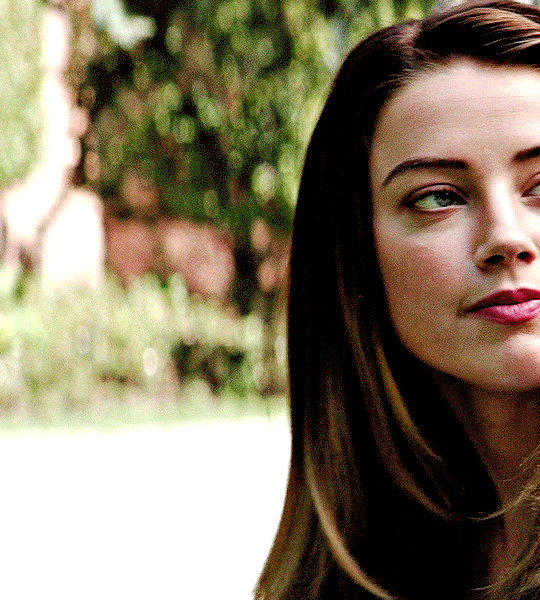
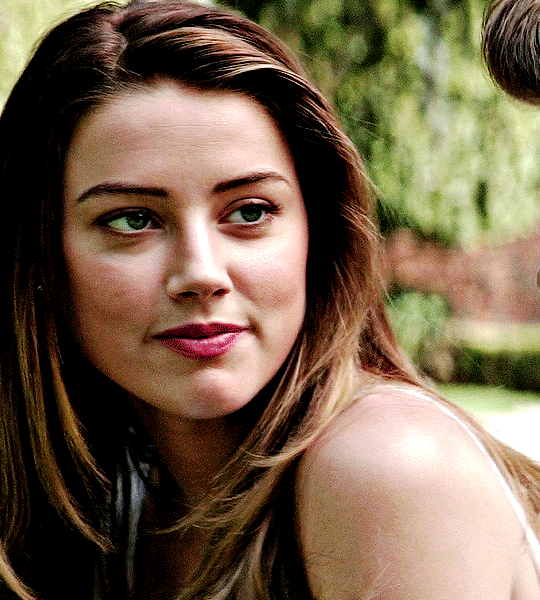


AMBER HEARD | Paranoia (2013)
246 notes
·
View notes
Text

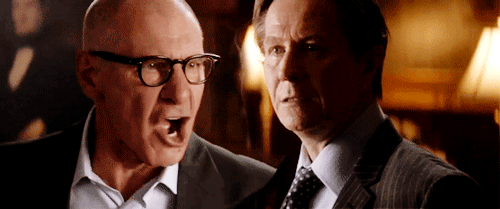
HARRISON FORD AND GARY OLDMAN
Air Force One (1997) dir. Wolfgang Petersen
Paranoia (2013) dir. Robert Luketic
#harrison ford#harrisonfordedit#hfordedit#gary oldman#air force one#força aérea um#paranoia#paranoia movie#paranoia 2013#conexão perigosa#movieedit#filmedit#mine#meus#please don't let this flop#the second gif was a bit hard to make#two acting monsters
25 notes
·
View notes
Text

AMBER HEARD as EMMA JENNINGS in PARANOIA (2013)
41 notes
·
View notes
Text
i love the block button
#bad vibes? block#bad takes on stuff i like? block#so freeing#when i was a kid (like 2013-2015ish) i was afraid of blocking people for some reason (i think i thought it was rude?)#so i constantly existed in a relative state of paranoia/walking on eggshells on this website#always anticipating some bullshit drama/anon hate/callout posts in response to a mistake i hadn't realized i made if that makes sense?#i was genuinely scared of some people on here bc of how aggressive they were over fandom stuff lol#(and tbh it seems to be getting WORSE somehow? i don't envy the kids of today. fandom is meant to be fun and silly guys!!!)#mostly a twitter issue since tumblr and ao3 and stuff seem to be primarily populated by adults nowadays lol#anyway point being i like being an adult and not caring what people think of me and blocking anything and anyone that mildly annoys me
2 notes
·
View notes
Text
What does it mean when you strategically plan out how to buy something without judgement being passed down upon you? Just... Just asking for a friend (• ▽ •;)
#{domino talks}#i wanna get a new (computer) tablet that i can still use to draw#but also slightly smaller#more comfy to hold#i would like to attain it before trying to sell my current one#just out of weird paranoia?#see if i can transfer any stuff easily before uploading it all onto my computer#which honestly would probably just be easier over all#plenty of stuff is already in the cloud#i'm mostly concerned about art files#I DON'T WANT TO LOSE IMPORTANT THINGS ಥ_ಥ#a bunch of stuff i wrote buy hand (pre-laptop era) is gone#and a bunch of anime i downloaded like a fucking decade ago are also gone#i do not know how to explain the absolute dread that i feel about#how difficult it was to find the english dub of black cat back in like... 2013?? 2012? i don't know#i found it on some backwater livejournal or blogspot or SOMETHING#that looked super sketchy and could have given me a virus#all that work and effort (╥﹏╥)#and then i'm also 99.99% certain that i lost other docs#but idk if a garage sale in my area is a good place to sell a tablet#like... it's in good condition for it's age i have the box and everything...#but a 2nd hand place would probably pay $30 for it ಠ∀ಠ#the issue is i just said i was fucking broke
0 notes
Text
Witchcraft In Media
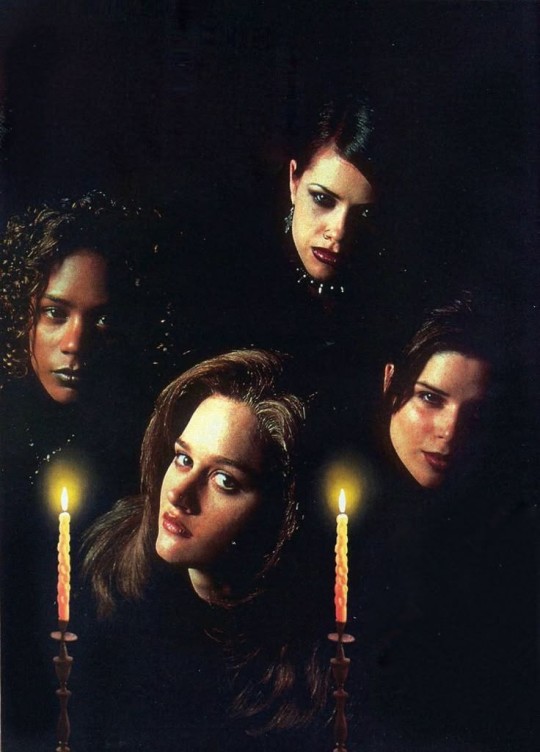
While most depictions of witchcraft in movies and TV shows are sensationalized for entertainment, some portrayals incorporate authentic elements from historical, folkloric, and modern witchcraft practices. Here are some of the most accurate depictions:
Movies
• The VVitch (2015) – One of the most historically accurate depictions of 17th-century Puritan fears of witchcraft, featuring real folklore, rituals, and paranoia about witches.
• Häxan (1922) – A silent documentary-horror film about medieval witch trials, based on historical accounts.
• The Craft (1996) – While dramatized, it incorporates real Wiccan elements, spellwork, and the ethics of magic.
• Practical Magic (1998) – Features real herbalism, divination, and folk magic traditions blended with fantasy elements.
• The Love Witch (2016) – Stylized but captures real elements of glamour magic, spell-casting, and the psychological aspects of witchcraft.
• A Dark Song (2016) – A rare and realistic portrayal of ceremonial magic, based on the Abramelin ritual, which is a real occult practice.
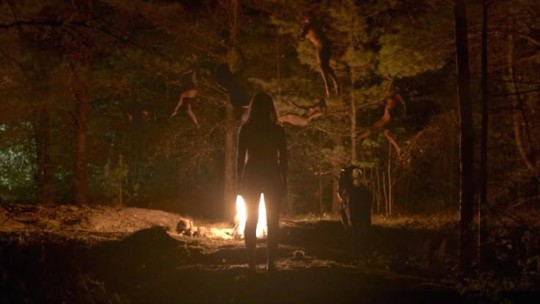
TV Shows
• Salem (2014–2017) – Though dramatized, it draws on real 17th-century witchcraft beliefs and Puritan fears.
• Luna Nera (2020, Netflix) – Based on real Italian witch hunts and folklore, focusing on midwives and cunning women.
• Chilling Adventures of Sabrina (2018–2020) – Uses real occult symbols, ceremonial magic, and references to historical witchcraft practices, though blended with fantasy.
• Penny Dreadful (2014–2016) – Features historical witchcraft lore, including Verbis Diablo, necromancy, and folk magic elements.
• American Horror Story: Coven (2013) – While exaggerated, it incorporates elements of real New Orleans voodoo, hoodoo, and folk magic.
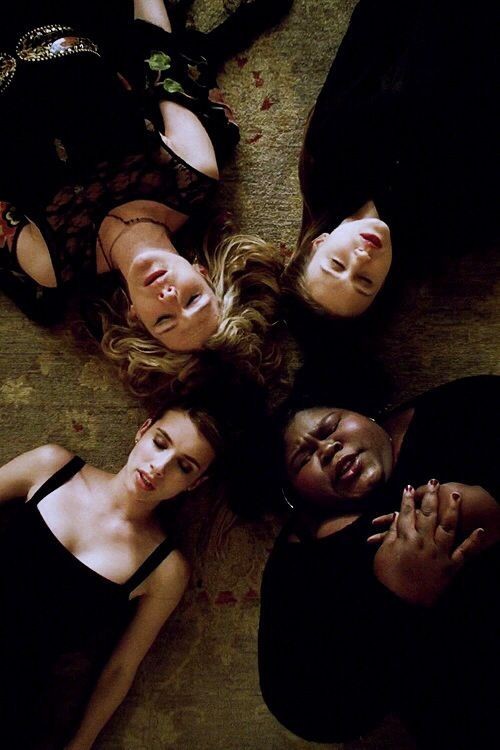
Cartoons & Animated Shows
• The Owl House (2020–2023) – Features sigil magic, covens, and different branches of magic inspired by real mystical traditions.
• Over the Garden Wall (2014) – Uses folklore-inspired magic and eerie Americana witchcraft themes.
• Kiki’s Delivery Service (1989) – A gentle, accurate take on hedge-witchery, showing a young witch using magic for simple, everyday purposes.
• Hilda (2018–present) – Explores Scandinavian and European folklore, including real folk-witch elements.
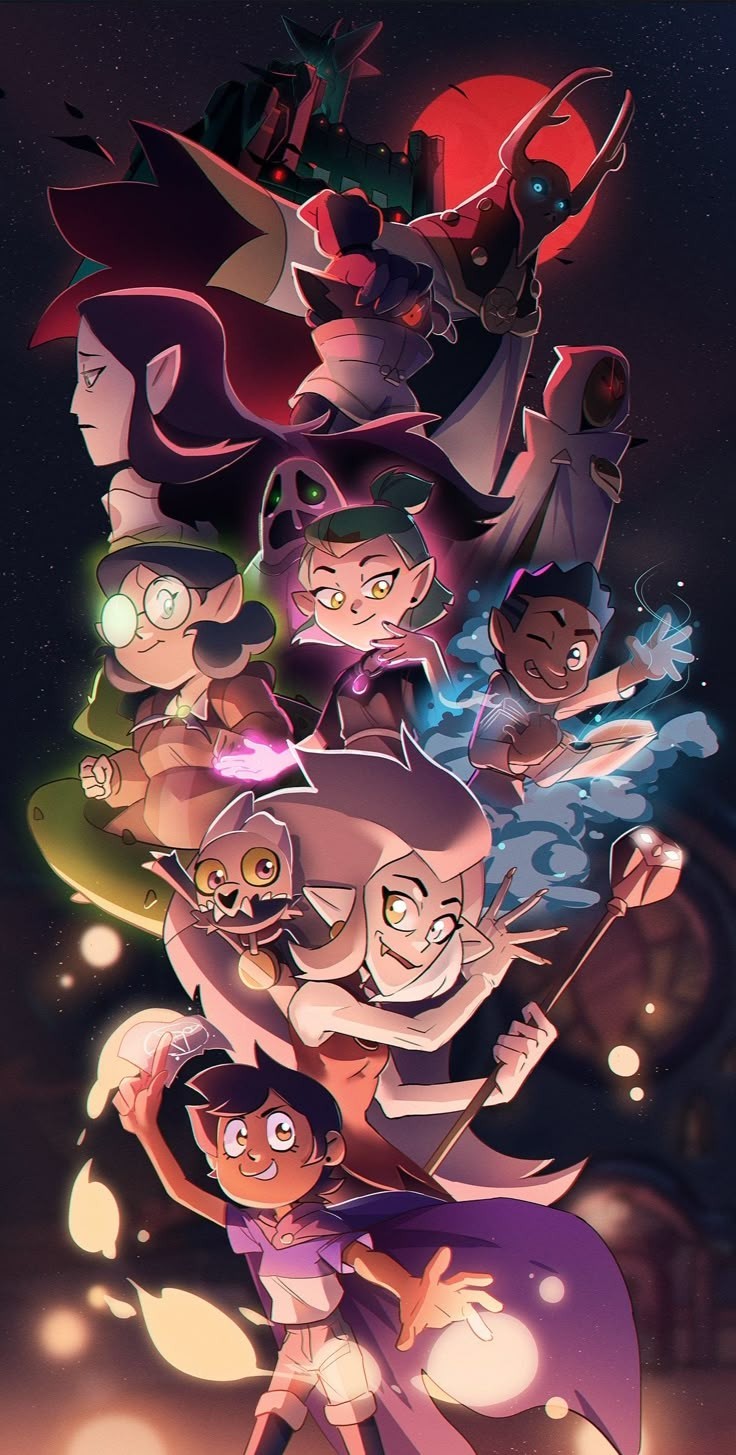
Honorable Mentions (Folklore-Inspired, but Not Entirely Accurate)
• The Wicker Man (1973) – Paganism-based but leans more into horror than actual witchcraft.
• The Blair Witch Project (1999) – Uses real witch lore but is entirely fictional.
• Suspiria (1977 & 2018) – Features elements of real occult and esoteric traditions related to dance and ritual magic.
• Sleepy Hollow (1999) – Includes genuine European witchcraft folklore, mixed with gothic horror.

#witchcraft#media#tv shows#movies#cartoons#anime#witch#magick#lefthandpath#witchblr#witch community#eclectic witch#eclectic#pagan#witchcore#american horror story#practical magic#owl house#kiki's delivery service#the craft#blair witch#representation#Accurate#realistic#sabrina the teenage witch#the vvitch#stories#Accuracy#dark#satanic witch
82 notes
·
View notes
Text
So truly as his song proclaimed, on one sunny day (A heat index of literally 97 degrees and climbing) I once again met with our old friend Bill Cipher by purchasing The Book of Bill.
And I gotta say.
It was like a WAVE of nostalgia.

I had forgotten how GOOD and WITTY Gravity falls had been. Not to mention the book in itself is SMART. We as a community were ENTHRALLED with the evil tortilla chip-an absurd thing to vote Tumblr's most sexy man 2013-and the book knew that and was like 'here is more of the chip man.' Like obviously there's codes and treats and what have youse for the smarter folks. But just the energy of the whole book, the fake ADS, the amazing design work, the missing pages, GATSBY, the LORE Bill gives that fills in so many blanks for us while callously poking more holes with a pencil at the same time. You read it perpetually bouncing back and forth questioning how reliable a narrator Bill is and more importantly, how much of it do you REALLY want to believe in?

It's a narrative that explores Bill as a person-at least how Bill Perceives it and with missing journal pages from Ford, how FORD perceived Bill.

The whole book in itself is a BREAK UP story, between a Man and the Monster who he unknowingly let into his life. A monster that pushes him to the brink, that makes the possession trope EXCITING AND NEW to me as he is horribly aware and actively communicating with the monster who is actively threatening his very LIFE if not given obedience and compliance. And it's not one sided yelling into the void convos-they can actually communicate and it makes the disregard so much more terrifying. It both makes you empathize with our favorite villain while not cheapening it so much to redeem him.
Reading this book validates the mania we see Ford with when we get the flash back episode of the Portal Incident. The sick sort of Paranoia that he's developed because every waking moment of his life has been ruined by someone he let in, trusted and opened up to.

The Book of Bill doesn't pull punches. There are parts in this book that go from 'comical horror' that jacks it up to 'Jesus fucking christ'

The Book of Bill does what the original show was not allowed to do-which is go further with how DAMAGING a relationship Ford had with Bill. How it was an addiction, feeding off each other. Ford in finally having someone who could in essence-REFLECT his own intellect back at him and Bill, a creature that demanded an audience to be witnessed by constantly.

Regardless, this was a FASINATING read. 110/10 totally work the trip in the 97 degree heat I made to 3 towns over JUST to get the Barnes and Noble EXCLUSIVE Copy that will now sit very proudly on my shelf. Go Buy it, Go Read it, It is WORTH it.
221 notes
·
View notes
Text
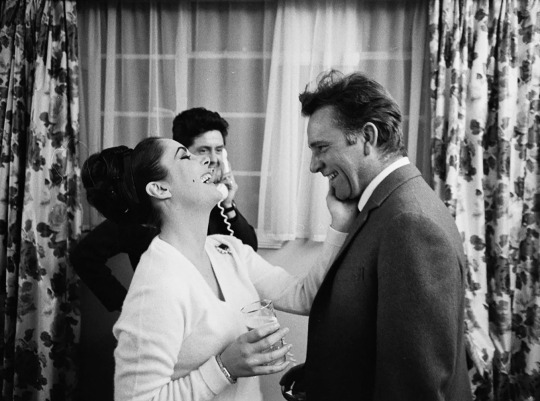
The last time I saw her, a year before her death, she was in a wheelchair, but still mentally alert, although she had become reclusive and an element of paranoia had crept into her outlook.
I mentioned her second husband, the English actor Michael Wilding, father of her two sons, who had been a friend of mine. She said sharply: "Please don't talk about him. He is haunting me."
"Well, I am sure he would be a friendly ghost," I replied. "Michael was always a very kind man."
"I was a fool to marry so often," she said. "If I had my time over again, I would never do that. The truth is I now don't give a damn about most of those men. Richard is the only one I truly loved and still care about. I shall miss him until the day I die."
- Excerpt from an 2013 article by journalist Michael Thornton for The Telegraph (UK)
#elizabeth taylor#richard burton#old hollywood#burton and taylor#black and white#vintage#love#photography#1960's#60's
66 notes
·
View notes
Note
I know that making things not only canon-compliant but canon-plausible is basically your hobby, and you tend to enjoy taking every little detail no matter how inane and incorporating it into the greater lore of your work. Have you ever had a moment where you were trying to find a logical explanation for something, realized that it was EXTREMELY STUPID, and now you just avoid writing things that will make it come up?
I think most fan writers have one piece of canon where they're like "Yeah, no, that was a bad decision, I'm just replacing [unbelievable event/racist character portrayal/blatant disregard for how mental health works in reality/etc] with [piece of fanon that makes it work better]."
Usually, even when there's an obvious author mistake, you still have a cool canon-compliant thing to do with it. Curious if there's any exceptions.
yeah, there's a few things.
Evidence implies that Ford fell in the portal in 1983. Evidence implies that the show takes place during 2012, but maaaybe 2013? The show says he fell in the portal "thirty years ago." He was probably intended to fall in the portal in 1982 but that doesn't line up with some of the dates (particularly, song release dates). Also, exactly how long did he know Bill between meeting him and getting portaled? And exactly how long was the paranoia era? My solution: the show takes place in 2012, Ford got portaled in *mumble mumble*, it's been """thirty""" years since he fell in the portal, we're NOT gonna worry about it, and maybe the Eurythmics released their albums a year earlier in the Gravity Falls universe did you ever think of that? Huh?? But at any rate I just try to quietly glide over the little timeline issues without addressing them.
Anything Bill says that would validate a real world conspiracy theory is a lie; but, much more likely, I'm just never gonna talk about it so we can ignore it completely, especially if the conspiracy theory is antisemitic or racist. "A cabal of global elites secretly rules the world and has a really cool break room"? Bill's lying; but also, we're NOT gonna talk about that, just chucking it out the window completely. "Bill helped fake the moon landing"? We can crack jokes about that one but only to establish that Bill was lying. "The Egyptians made the pyramids look like Bill"? We're NOT gonna claim the Egyptians made the PYRAMIDS for Bill, at most they might have redecorated them; but we're probably not gonna talk about them redecorating the pyramids anyway; and we're gonna crack jokes about how stupid Ancient Aliens style idiocy is; and maybe we're just gonna minimize talking about Bill's relationship with Egypt entirely.
(A side note: one thing i REALLY appreciated from TBOB is that it clearly established that they did not build the pyramids for Bill, just temporarily redecorated them; they did not worship Bill, they thought he was a pest; and the book went out of its way to have Bill say anyone who claims aliens helped with the pyramids is a con artist. It didn't have to do that! But it really improved things a LOT.)
Anything not mentioned by Bill that alludes to iffy real world conspiracy theories, we're just not gonna talk about. "America is secretly ruled by someone other than the president and nobody knows," not gonna talk about that, I don't care that it's Santa. "Dapperly-dressed reptilian aliens," not gonna talk about that, I don't care that they were here to go dog sledding. "Mt. Rushmore is secretly a bunch of robots built to defend America from a future threat," NEVER gonna talk about that, Mt. Rushmore is a carving made by a racist on stolen land sacred to several Native American peoples, it does not deserve to be made cool.
and speaking of Santa: I don't care for Jewish characters getting shoved into Christmas stories, especially if they're "wow, it turns out the Christians were right about the existence of this folkloric figure associated with one of their most important holy days" Christmas stories, so there's a high chance I'm just never gonna mention the Krampus plot lmao. If I do, it'll only be because I need to acknowledge the relationship building Ford & Fidds got. (Or to acknowledge Ford's rage at being commanded to conform to holiday expectations, which is REALLY funny and he's completely right.)
Those are the things off the top of my head.
77 notes
·
View notes
Text
"This Play Is About A Psychopath" — Throwing the DSM at The First Shadow
I talked earlier this week about doing some more psychoanalysis on Henry, and I decided to expand it a little to encompass some thoughts I had about Brenner.
Way back in the day, I wrote up a huge analysis on why I disagree with Henry being armchair diagnosed with ASPD (coloquially: psychopathy/sociopathy). I broke down signs and symptoms, and I laid out all the ways in which Henry does not align with them.
This time, I'd like to lay out the diagnosis that I do think fits Henry and why I think he fits the bill for that disorder.
Based on what we learn about Henry in The First Shadow, my first choice of diagnosis for him—barring the supernatural aspect—would be: Paranoid Psychosis or Paranoid Schizophrenia (which is to say: a case of psychosis/schizophrenia that presents with paranoid delusions, since the term "paranoid schizophrenia" was deemed obsolete in 2013).
Henry experiences:
paranoid delusions (see: being controlled or coerced by a supernatural entity, hearing voices/voices in his head telling him what to do)
hallucinations, particularly ones that serve to reinforce those paranoid delusions (see: his "visions")
affective flattening
violent outbursts and irrational, out-of-character behavior
I'm not going to list all the technical criteria for schizophrenia, because the list is extensive, but I will list the most important aspects in regards to Henry:
A. Characteristic symptoms: Two (or more) of the following, each present for a significant portion of time during a 1-month period (or less if successfully treated): 1. delusions 2. hallucinations 3. disorganized speech (e.g., frequent derailment or incoherence) 4. grossly disorganized or catatonic behavior 5. negative symptoms (i.e., affective flattening or avolition) (Note: Only one Criterion A symptom is required if delusions are bizarre or hallucinations consist of a voice keeping up a running commentary on the person’s behavior or thoughts, or two or more voices conversing with each other.) B. Social/occupational dysfunction: For a significant portion of the time since the onset of the disturbance, one or more major areas of functioning such as work, interpersonal relations, or self-care are markedly below the level achieved prior to the onset (or when the onset is in childhood or adolescence, failure to achieve expected level of interpersonal, academic, or occupational achievement). C. Duration: Continuous signs of the disturbance persist for at least 6 months. This 6-month period must include at least 1 month of symptoms (or less if successfully treated) that meet Criterion A (i.e., active-phase symptoms) and may include periods of prodromal or residual symptoms. During these prodromal or residual periods, the signs of the disturbance may be manifested by only negative symptoms or two or more symptoms listed in Criterion A present in an attenuated form (e.g., odd beliefs, unusual perceptual experiences).
Henry has been experiencing his symptoms for well over 6 months, his social and academic performance have tanked since onset (see: Virginia arguing that Henry's not ready to go back to school, indicating that he's missed a decent amount of schooling due to his symptoms), and even without the caveat for hearing voices, he meets the criteria for point A.
As far as anyone who's not versed in the supernatural knows, none of this is caused by a physical condition (such as a brain tumor), substance use, or another psychological condition, meaning Henry also meets points D-F (not listed, but can be found here. More signs and symptoms can also be found here, most of which Henry meets).
Thus, I agree with the conclusions of the psychiatrists back in Nevada: Henry suffers from psychosis, specifically paranoia-heavy schizophrenia, and specifically couched in the traumagenic neurodevelopmental model of psychosis. He's also got obsessive-compulsive traits derived from his fear of the "delusions" that come along with his condition (see: his repetition of soothing phrases and his fear that the urges being foisted upon him are things he really wants—which are textbook examples of compulsions and obsessions/intrusive thoughts).
If we pretend to be unaware of the supernatural aspect, the leading explanation for Henry's case is that whatever he experienced when he went missing was bad enough to drive him insane—something which he fears intensely and has little to no control over—and Virginia feeding into his "delusions" by fearing him, treating him like a loose canon, and having an exorcism performed on him only made it worse.
In fact, were I unaware of the Shadow, I might even float the idea of Folie à Deux (AKA: Shared Psychosis) for him and Virginia, given that they share the "delusion" that Henry has psychic abilities. It's a little outdated, as it's not a disorder that appears in the DSM-V, only the DSM-IV, but the symptoms are there. Brenner, in both versions of TFS, even goes so far as to allude to that kind of condition.
The scene goes like this:
Brenner: Your mother seems to think you have some kind of abilities, some...power. Henry: Then maybe she's the one who should be committed. Brenner: So you're saying you don't? Henry: I'm saying she's..."confused". Brenner: Probably. It wouldn't be the first time. It's typical, actually. The mother—it's always the mother—comes and claims her child can do things, impossible things. Magic, curses...spiders. And I come out to investigate, and I usually find something like this: A socially maladjusted child—that's you—who presents psychologically poorly—also you—but not nearly as poorly as the mother, who is, invariably, "confused".
Virginia presents symptoms of Shared Psychosis. To the letter, in fact. The criteria for Shared Psychosis in the DSM-IV were:
A. A delusion develops in an individual in the context of a close relationship with another person(s), who has an already-established delusion. B. The delusion is similar in content to that of the person who already has the established delusion. C. The disturbance is not better accounted for by another psychotic disorder or a mood disorder with psychotic features and is not due to the direct physiological effects of a substance or a general medical condition.
Virginia, who is not experiencing her "psychosis" due to any underlying conditions, and who maintains similar delusions to her actively "psychotic" son, would meet the criteria for Shared Psychosis.
In short: They feed off each other.
Or rather, Virginia, Henry, and the Shadow feed off each other, because Henry and Virginia aren't actually suffering from delusions. Everything they're experiencing is real. Henry's paranoia is well-founded, he is genuinely being puppetted by a supernatural being, he is being shown visions, and the voices he hears are real. They're just facets of the Shadow rather than facets of a psychological disorder. Likewise, Virginia isn't wrong. She's not actually deluded. Her son does have psychic abilities. Her son is doing violent things with said powers. Her son is a danger to himself and others if he doesn't receive comprehensive care. Her only problem is that she can't distinguish her son from the being controlling him—but that's less a matter of psychiatry and than it is 1950s parenting and general attitudes about believing victims.
Key Takeaways: Henry isn't evil, nor is he suffering from ASPD. He's suffering from a special brand of pseudo-psychosis induced by the Shadow, wherein he is sane and everyone else around him simply doesn't believe him because he fits the bill for a paranoid schizophrenic.

However, speaking of ASPD, I'd like to continue one of my earlier trains of thought about Brenner—specifically Broadway Brenner.
Broadway Brenner has a specific...flavor to him. To talk more about it, I'm gonna whip out my handy-dandy infographic:

Now, we don't know much about Brenner as a child, so it's hard to discuss conduct disorders, but we can line him up against a) the 3 domains of psychopathy and b) the criteria for ASPD from the DSM-V.
Let's start with the 3 domains:
GM: Superficial charm, glibness, suave behavior. Megalomania and narcissism. Lying. DI: Fearlessness, impulsivity, recklessness, lack of responsibility. Risk taking behaviors. CU: Lack of remorse, empathy, sympathy, or compassion. Shallow emotional affect.
And now, the DSM-V criteria for ASPD:
- The presence of a pervasive pattern of disregard for and violation of the rights of others. This behavior begins by age 15 and is present in various contexts. Clinical features include ≥3 of the following: 1. Failure to conform to social norms concerning lawful behaviors, such as performing acts that are grounds for arrest. 2. Deceitfulness, repeated lying, use of aliases, or conning others for pleasure or personal profit. 3. Impulsivity or failure to plan. 4. Irritability and aggressiveness, often with physical fights or assaults. 5. Reckless disregard for the safety of self or others. 6. Consistent irresponsibility, failure to sustain consistent work behavior, or honor monetary obligations. 7. Lack of remorse, indifference to or rationalizing having hurt, mistreated, or stolen from another person. - The individual is at least age 18. - There is evidence of conduct disorder with onset before age 15. - The occurrence of antisocial behavior is not exclusively during the course of schizophrenia or bipolar disorder. Adults who do not have evidence of conduct disorder in childhood and adolescence but otherwise meet the diagnostic criteria for ASPD can be diagnosed with adult antisocial behavior.
Some things I can say for certain about Alex Breaux's Brenner are that he's suave, reckless, fearless, and at times devoid of remorse, sympathy and compassion—except when it comes to Henry, but I'll touch on that more later.
Broadway Brenner's attitude is slick, especially when he wants something. He smiles and laughs his way through platitudes, even occasionally coming off as condescending with how "sweet" he can be. He can pull on a convincing sympathetic face—for example, his interactions with Virginia wherein he convinces her to give up Patty—and then drop the mask shortly thereafter (see: his general indifference towards Virginia's corpse).
He's also incredibly reckless and fearless. For example, here's the memo Brenner and his team supposedly received from the D.O.D. regarding Henry:

It warns them to use extreme caution around Henry, given that he's prone to violent outbursts with unpredictable psychic powers.
What does Brenner do? He immediately sets about riling Henry up, specifically with the goal of getting Henry to lash out violently. He goads Henry with insults, he manhandles him, he throws him across the stage—all while the Shadow is acting up. He doesn't know who Henry's going to attack when the Shadow rears its head, and he doesn't seem to give it much mind. Regardless of whether Brenner's banking on his understanding of Henry's morals, it's still incredibly reckless. It endangers Brenner's life and the lives of others at multiple points. Brenner doesn't seem to care, save for his comment about poor Alice after the Creel murders (which happened as a result of his poor planning). He keeps doing it, though, and he remains the sole person who was really and truly unafraid of Henry. At one point, he even eggs Henry on to kill him. As such, Brenner displays a general disregard for his own safety and the safety of those around him, whether he personally wants to harm those people or not—specifically in pursuit of his own goals, whatever those goals may be (whether they be "open a gate to Dimension X" or "collect the Shadow from Henry" or otherwise).
He also openly displays callousness and remorselessness. For example: Captain Brenner's death. Brenner rushes over to his father when he wakes up after some 16 years in a catatonic state, but we quickly realize that his father is far and away less important to him than Henry is. When Henry opens the gate and Captain Brenner dies, Brenner waves it off with a cool "It doesn't matter. He was weak". I can't help but wonder if this all ties back to the Act 1 prologue, wherein Captain Brenner states that Brenner Jr. hates him. Brenner, at that point, was 15...which would put him exactly in line with the diagnostic criteria. I don't necessarily think that was a coincidence. Regardless, Brenner's behavior re: his father displays a level of utilitarian callousness. He doesn't care about his father's demise, and he doesn't feel bad about the fact that it happened in one of his own experiments. All he cares about is making sure Henry is okay.
Or, for another example under the same umbrella: After the gurney scene with Patty and Henry, Brenner is told that the men upstairs want a word with him. He tells his staff to wake Henry up and bring him upstairs before rushing offstage. One of the techs raises the point that they don't have enough adrenaline to wake Henry up, and that another dose might give him a heart attack. The other tech stands firm, and says that they need to get more adrenaline and wake Henry up anyway, lest either of them end up "on the table"—implying that disobedience isn't tolerated, and that Brenner's wrath is not something to be played with.
Just from these few scenarios, we start to paint a picture of reckless, irresponsible, poorly-planned behavior in pursuit of personal goals with little forethought on behalf of others and little to no compassion or understanding for others.
Brenner is smooth, and he's ruthless. He fits the bill. He's meeting far more than 3 of the criteria for ASPD.
However, TFS does not always portray Brenner as evil, which I find very, very interesting. It's very clear that Brenner can display compassion and affection, when he wants to. Just because he broadly lacks certain prosocial behaviors in day-to-day life doesn't mean he doesn't display other prosocial behaviors in specific situations—namely situations with Henry in them. One might even say that Henry is the exception that proves the rule.
An "exception person", colloquially, is someone with whom the person with ASPD's symptoms are less severe. They may be more thoughtful, compassionate, honest, and/or careful around this person—largely because this person is someone they deem worthy of respecting and caring for.
It's important to note that exceptions aren't a spontaneous "Wow <3 I'm cured <3 I'm no longer mentally ill", and the prosocial behavior extended to them may be given more along the lines of "I need to try to be prosocial for this person because they are important to me, even if I don't feel naturally compelled to behave that way".
So, when I say Henry has the distinct flavor of an exception person, I'm not saying it in the way of "Henry is the only person Brenner's not fucked up about". No, no. Brenner is still very much fucked up around Henry, and their relationship is still quite toxic/harmful—whether it's wholly intended to be or not. (Read: whether Brenner is purposefully angling to harm or help Henry is irrelevant here, because either way harm is being done—just like Nancy jabbing Will with a hot poker will leave a burn scar even though she was doing it for all the right reasons.)
What I mean is that Brenner's limited prosocial behavior towards Henry comes from a place of attachment and a desire for Henry to work with him as a duo.
Brenner, by trade, is a lone wolf. This is true no matter which version of him we're discussing. He's the lone top dog in HNL, he's the lone top dog in TFS's Project Rainbow, and even in ST4 he's so very reluctantly paired up with Owens for NINA...and even then they can't go 5 minutes without Owens making some kind of sympathetic or remorseful comment that has Brenner rolling his eyes.
However, TFS comes in swinging with Brenner's sentiment of "I want us to work together, father and son", and on Broadway it pairs that with Brenner being overtly conscientious of Henry's emotional needs. Brenner has no qualms about putting Henry through the wringer, nor does he seem to feel any remorse for doing so, but he follows it up with damage control, which he notably does not do for anyone else.
Henry's special, and it's not solely based around his abilities. At multiple points, Brenner voices his concerns about losing Henry's mind/personality to the Shadow. He displays no concern following his father's death and the loss of a possible avenue to bring the old man back, but he makes sure to impress upon Henry that his aim is to prevent him from ending up like Captain Brenner—and when Brenner's unsure whether or not Henry is gone (specifically in the catwalk scene), Henry's status as a person disappears. As soon as Brenner thinks the Shadow might have finally consumed Henry, he starts throwing around phrases like "He's not a boy, he's a weapon, and he's the property of the United States government". It's all about Henry as a person. His personality, his mental acuity, his self-control and his ability to fight the Shadow.
Henry is, in a word, an exception. Not the powers, not the Shadow, Henry. To exemplify it in a single quote, Brenner says "you are the key, Henry", not "you hold the key, Henry".
In short: Brenner displays consistent antisocial behavior in line with the DSM-V criteria for Antisocial Personality Disorder, but it does not make him evil or incapable of love—making TFS a nuanced and graceful portrayal of someone who displays these symptoms.
Takeaways: Henry and Brenner's dynamic in TFS can be summarized in one image—

#long post#psychoanalysis#this comes as an answer to the one anon asking me if i had any comprehensive posts about henry and psychosis#henry creel#martin brenner#virginia creel#st: tfs#tfs broadway
22 notes
·
View notes
Note
AITA for stealing jewelry and a few other items from my hoarder aunt?
This was a few years ago now, I wanna say maybe 2018? My dad has two sisters, Z and K. K is married to a hoarder and has some hoarding tendencies herself so their house and particularly their garage is a mess. Not biohazard levels of mess but for sure just dusty, dirty, and stuffed with with ancient unusable garbage. K and her husband don’t have any kids, they’re both in their mid-70’s and both are in pretty poor health, so Z flew down from Florida and asked my father and I to come help clean. We agreed and came down for a day.
I have a weird relationship with my aunts. K took care of their mother until she died, and until she died my father would be at his sister’s beck and call. He would frequently abandon his own family to go help K and his mother. I don’t blame him for this, he wanted to help his sick mother, but I do blame K for using him as free labor. He built the house K is hoarding in, destroying his body in the process. Now that I’m an adult I don’t really speak to either aunt, like I had no contact with Z since Z’s second wedding in 2013. K is much closer location-wise but I don’t speak to her either because she’s just kind of off putting. The last time I spent time with her we went shopping and she kept telling me stories of her miscarriage and how annoying her husband is and pointing to someone and loudly asking “you think that’s a man or a woman?” Like I understand we are family but K and Z are as close to strangers as family can get to me. This doesn’t even cover my mom’s opinion of them and their treatment of her. Both Z and K have a history of manipulation, deception, and are both very vindictive and ignorant. She hates them both to the point of paranoia. My sister and I have a similarly low opinion of them both, but we both are more tolerable, myself especially.
So we arrive and we clean, Z and I working together to throw away a bunch of shit and my father worked on installing a new dishwasher. I stumble upon this gorgeous hanging lamp that looks like a large full moon. I text my mom about it and she flips. “That’s mine,” she says, “your father and I found that on the side of the road one night when we were first married.” So I load it into my dads car because it’s so pretty and it belongs to my parents. “Hey, you better ask if you can take that” Z says and I flat out tell her that it belongs to my mom. She shrugs and we continue to work. I find another really cool set of hanging lamps and a solid wooden lamp base carved to look like a gazelle that probably belonged to K’s husband’s parents and I took those too, with no input from Z.
These items weren’t lovingly packed and carefully stored away. They were sitting in plastic bins stuffed with dozens of boxes disintegrated plastic gloves and tools that were more rust than anything else. Towards the end of the day we discover some jewelry boxes and I take those inside to go through with K. A lot of it was junky costume jewelry but there’s some incredible pieces including a pair of 14k gold hoops that look like rams heads, a cool brass ring with an enameled signet with the Sagittarius archer, and a huge silver heart pendant. I carefully set aside the items that I would like to take home and K didn’t say anything, either because she didn’t notice or didn’t care.
Finally when we got home I showed my mom all of the cool stuff I found and she kind of scolded me, saying I should have asked to take this stuff and I brushed it off by joking that this was payment for my cleaning services. She was very happy that I rescued her moon lamp though.
I’m wearing that chunky silver heart pendant today and am thinking about it again. K doesn’t have any children so the only people who would ever inherit this junk would be either myself or Z’s kids, but Z’s daughter is no contact with Z and Z’s son lives on the other side of the country. We own the property that K lives on, pay for the taxes on it and pay for the maintenance on it all without charging K anything, so even when she and her husband die my family is going to have to clean it anyway and I can assure you I would be the only person who would actually want to sift through the garbage to find cool stuff. I feel like I saved this stuff from the landfill. I wear the jewelry I took, we have that really cool gazelle lamp displayed in our living room, and my sister said she was going to use the hanging lamps I brought home for when she has her own home. But of course I technically stole all of it and for sure will not be giving it back, even if she noticed it’s missing. AITA?
What are these acronyms?
216 notes
·
View notes
Text


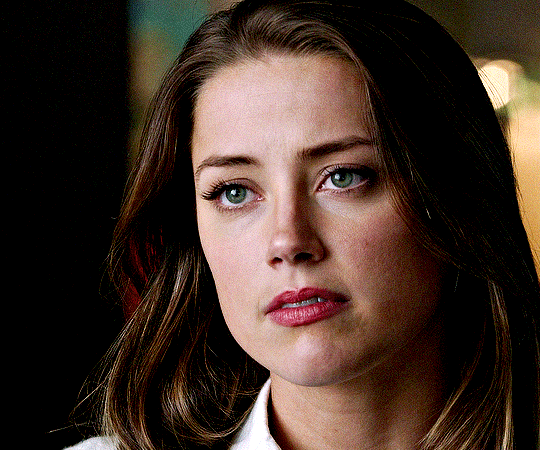
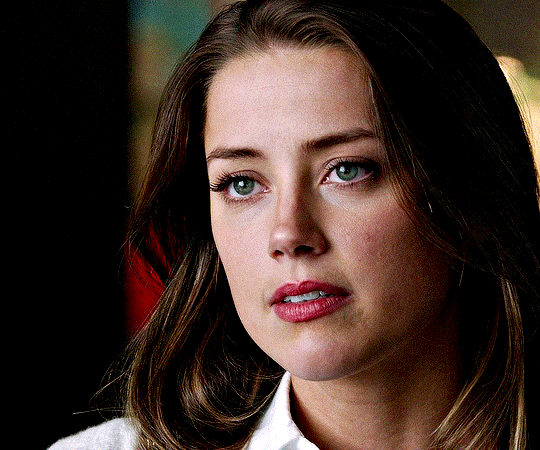
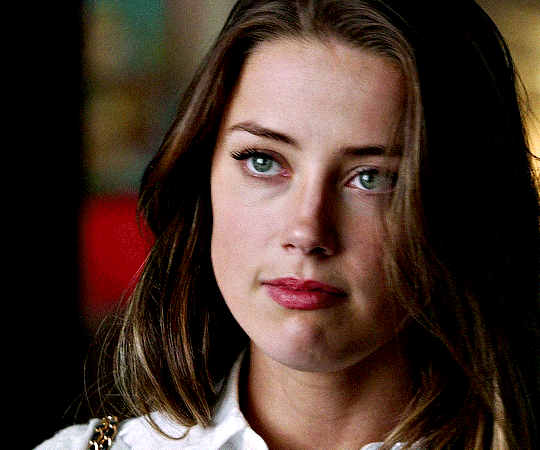
AMBER HEARD in PARANOIA (2013) dir. Robert Luketic
#aheardedit#amberheardedit#amber heard#dailywomen#femalecharacters#userladiesblr#userladiesofcinema#dailyfilmtvgifs#cinemapix#dailyflicks#femaledaily#dailyheardwood#femalegifsource#tusercourtney#userloren#filmtvcentral#tvfilmsource#cinematv#**#*gif
293 notes
·
View notes
Text






Harrison Ford in Paranoia (2013) dir. Robert Luketic
#harrison ford#harrisonfordedit#hfordedit#paranoia#paranoia movie#paranoia 2013#conexão perigosa#movieedit#filmedit#mine#meus#the fourth gif#his smile is everything#love me some bald grandpa ford ❤️
22 notes
·
View notes
Text


AMBER HEARD as EMMA JENNINGS in PARANOIA (2013)
24 notes
·
View notes
Note
Not a named fic but is there any chance of some directors commentary on this tumblr.com/le-chevalier-au-lion/777187077766971392/?
alright. internalized (and sometimes externalized) homophobia in 2013 valentino is probably one of my favorite angles to approach him (expanded in my crimson, carmine, scarlet series, if i can promote myself)
i'm operating with a degree of meanness to valentino. of this wildly lashing out need to control people's perceptions of him. he can be girly in his teens, and not your typical 500cc rider. he can be worshipped, and fuck how many girls? idk, all of them, and be worshipped especifically by men (uccio)
but it's not serious. because he is in control. because he is using them and humiliating them and getting off on being god playing toys. because valentino fucking rossi isn't gay
you're operating in this very particular brand of deranged paranoia. if i'm fucking them then i'm not gay. if i'm being sucked off then i'm not gay. associating bottoming with womanhood with weakness. this has been a long preface to say: 20 year old starstruck marc wouldn't mind the secrecy and the games and the dirtiness and the occasional insult that maybe valentino meant a little too much
but 32 year old wounded marc really, really would
“You aren’t afraid of cock anymore,” Marc huffs. There’s meanness in how he grabs Valentino’s hand and presses it against his waxed balls. Valentino chokes on his own tongue. He can’t find the words to translate the cottony, churning thing in his stomach—doesn’t want to. It wasn’t like that with Uccio or Sete or Collin. They weren’t— Younger than him. Bigger than him. Maybe better than him.
i'm breaking this own in parts. first: you aren't afraid of cock anymore. imagine if you're this neurotic version of valentino. and marc márquez shows up. he's maybe better than you. he's certainly younger than you and has a bigger dick than you
there's no world that he isn't nasty about it. cruel even. so now things changed. what marc is saying is: have you changed? but in the worst most aggressive way that he can put it. because he's pushing valentino's buttons the way his were pushed once he understood things better
is the thing at valentino's stomach a level of disgust? maybe. that too. it's also want. it's also doubt
it really wasn't like that with uccio, or sete, or collin, people that he could control. it wasn't like that with biaggi (because he wouldn't have done it with him, dismissive and contemptous as he was of max biaggi's existence). it wasn't like that with casey or jorge (because he wouldn't ever, too dangerous, too close to home, too skilled)
but it was like that with marc
marc who's now happy to twist valentino's arm. it is a little about how marc was hurt. but it's also about marc being nastyyyy about valentino's old insecurities
#do i have a yapping tag? i feel like i have a yapping tag#the nasty nasty mind of a man born in 79 in italy
9 notes
·
View notes
Text
accidentally ended up driving near a high school during lunch hour and saw a teenager in a Rae Dunn font, Young the Giant t shirt. very not good for my paranoia that culture ended in 2013 and we’re all just walking around in eternal recurrence. truly we live in an eternal 2013
7 notes
·
View notes